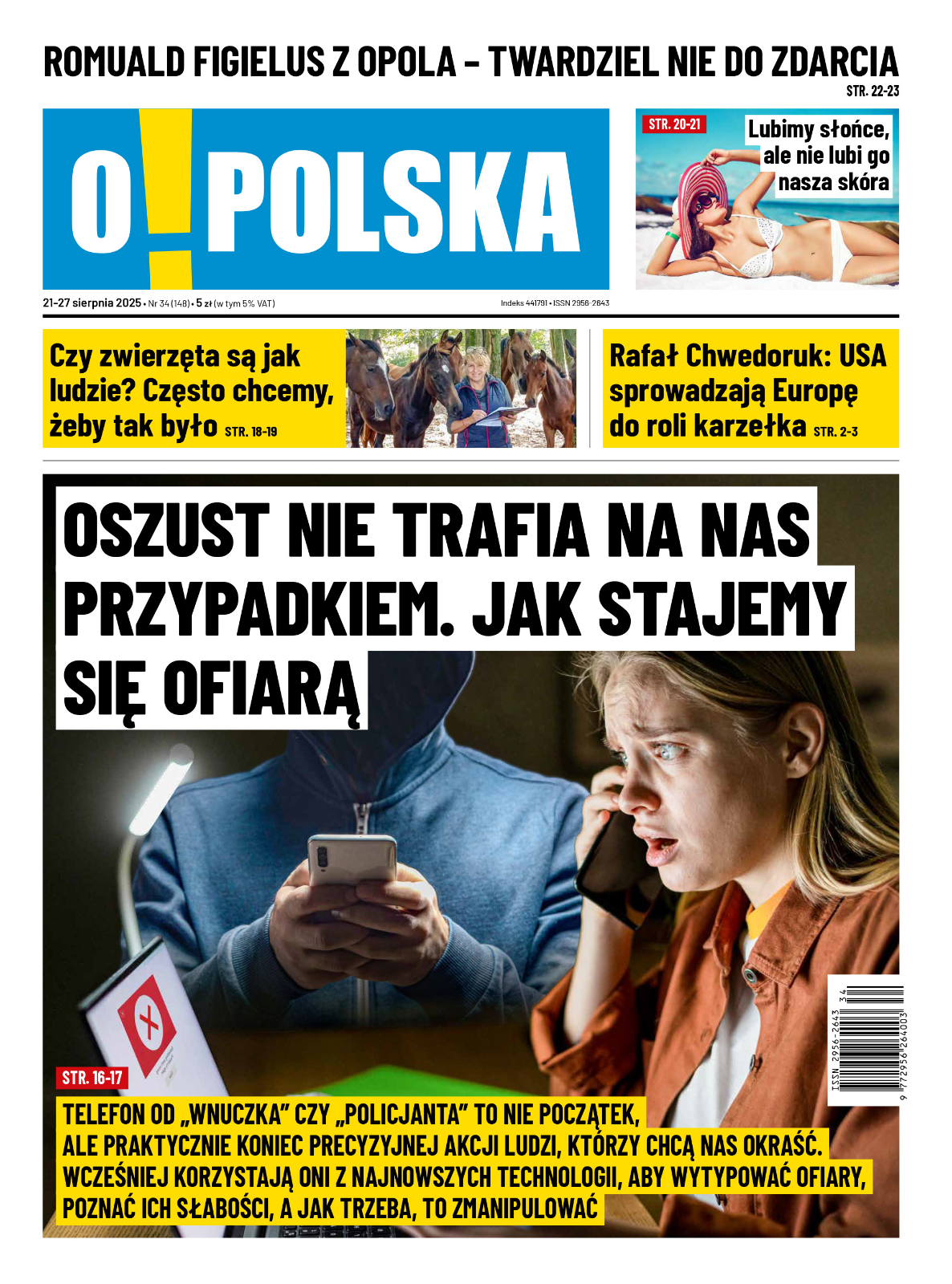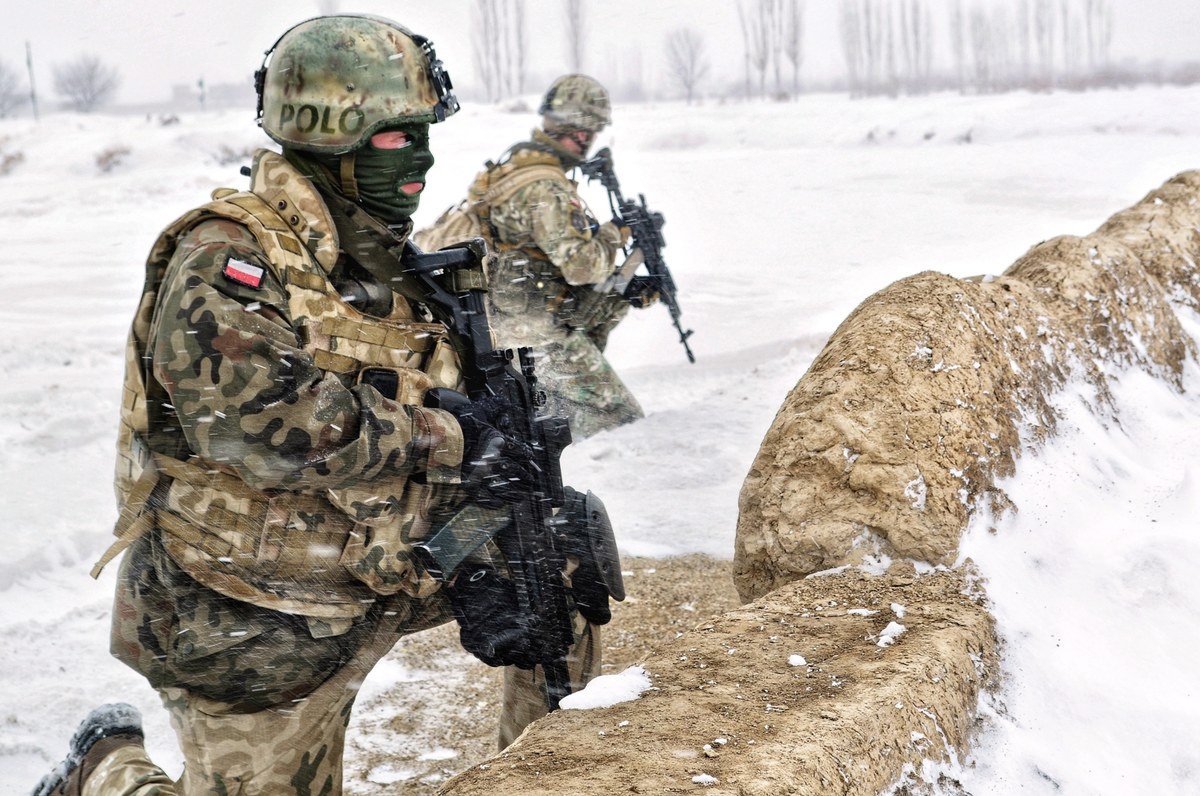Bożena Ratter: The effectiveness of Communism - February 10, 1940, the first Polish mission
date:16 February 2013 Editor: GKut
Hi to our countrymen who were sent by the Soviets to an inhuman land never returned to their homeland!

We remind you of the 2013 column:
In Lithuania, close Turgiele, in the 18th century the alleged Pavłowska Republic existed.
The Republic of Pavłowska was created by Vilnius canon, Paweł Ksawery Brzostowski /1739-1827), in his purchased estate. Paweł Ksavery Brzostowski was conliged with the magnate families of the Grand Duchy of Lithuania and the Crown, completed his prestigious studies at the Roman Collegium Clementinum and held the dignity of: author of the Grand Lithuanian and Deputator to the Vilnius Court. He has made respective twelve translations of genealogical, theological, historical, and political works. He had considerable money from his father’s inheritance.
The Republic of Pavłowska “ covered an area of over 3,000 hectares and had its own constitution, coat of arms, money, a peculiar parliament, treasure, self-help money, school, etc. Her president, Paweł Brzostowski, distributed his land among the peasants and introduced repayment by the title of redemption. He besides cared about their lives, culture and education. The most sound in Europe was made by Fr Brzostowski's Act of 1769 organising life in the Pavlovian goods on a self-government basis. At his residence, he organized “farming education for adults at various educational meetings to familiarize peasants with the vast collection and specimens of natural history. 1 of the most common lecturers was Fr. Prof. Wilhelm Kaliński from the Vilnius Academy."
In the 17th century, Andrzej Potocki, head of the crown field, expanded the city of Stanisławów and founded the Academy. It was for those times something so extraordinary that the Frisian Ulryk Werdum, passing through Stanisławów in 1772 in the diary of travel, drew attention to the “high school with 5 professors”, as a large singularity of the city. Potocki both a Jesuit collegiate and a university equipped with wealth in the form of many estates to make a living. In the times of the Second Polish Republic, there were dozens of schools with Polish, Russian, judaic and even 1 German. And as with Lviv , Vilnius, Grodne, Krakow, Warsaw, Wrocław, Gdynia and thousands of another cities, towns, villages, and Stanisławów, we join the Poles, who built, developed, maintained at the highest European and planet level and protected our common heritage.
In 1880, from Tarnow to Stanisławów, 18-year-old Stanislaw Chowaniec arrived in search of work. A young, capable printer founded his own printer with a modern lithographic plant. He shortly became manager of the Polish bank, to which he built a beautiful, secession building. He died young leaving 4 sons. In 1924 Wacław's eldest boy became mayor of Stanisławów. Wacław entrusted the printery and all his assets to his brother Tadeusz and devoted himself with passion to the city. The hideout did not number on its own household interests, as it considered the construction of a high-power urban power station to be the most important. due to the fact that without energy, there would be no progress. The second key investment was the modernisation of the fire brigade. There were besides fresh barracks, tennis courts, paved streets and pavements laid, but besides on attached periphery. 20 welfare facilities were built and comparatively cared for, including orphanages. The city greatly supported education and culture, as demonstrated by 14 general schools, 8 private or state advanced schools, 4 teacher seminars and 3 theatres-all in 4 different languages.
W Stanislawów inactive has the inscription Jaworski on the openings of the street canals, from the name of the owners of the mill of machinery and iron foundry and metallic foundry “Kraj”, there was besides the Haber refinery, the agricultural machinery mill “VIS”, the spirit and yeast mill of the Liebermans and the undertaker and skin mill of Jakób Margosches. From Stanisławów comes General Stanisław Sosabowski and the wife of president Ryszard Kaczorowski, they are only 2 excellent names among thousands of the same. In 1880, in Stanisławów he founded the first secret ellipse of youth future politician, Ignacy Daszyński. In 1911, scout teams were allowed to start, General Stanisław Sosabowski was nineteen at the time and became a squad associate of the first squad of scouts. (Tadeusz Olszański Stanisławów inactive lives)
On 23 August 1939, Germany, which has worked with the russian Union since 1922 to improve the war technique, agreed on the issue of the hated "basket of the Treaty of Versailles" and allocated the Baltic and east parts of Poland to the russian Union - writes prof. Stanisław Alexandrowicz. As a consequence of the aggression, nearly 13 million people were under russian business (Anna Kubajak, Kresy and Sybir).
On September 17, at dawn, the Red Army began an invasion on the full thousand-mile long east border of the Republic. The presidents of Stanisławów, Lviv, Vilnius, Tarnopol, Łuck and many another border cities did not leave, as did the president of Warsaw, their offices. Most of them were immediately arrested and transported to Siberia. "The enslavement began from disarming officers and soldiers due to the fact that they fought Hitler's assault on Poland and all Europe. Immediately afterwards, the transports of the population began from the lines to Workuta, Kolyma, Magadan. This is where the deportees, sentenced to destruction, lost their lives, their health, acquired their disability. And following them, families who were considered worthy of exile were thousands, hundreds of thousands of Polish families exported in 4 mass deportations: February 10, April 13 and June 20, 194o and June 21, 1941; the Siberian taiga and steppes of Kazakhstan. And along the tracks, on the railway embankment lay the cast corpses frozen to death, from hunger, disease, thirst for infants, children and old men.” (Ryszard Reiff.
After the Soviets entered Stanislawów NKWD immediately arrested Tadeusz Chawic, in April 1940 he was murdered in Katyń along with thousands of Poles mobilized by the Government of II of Poland to war with Germany. The best rotary machines were shipped to Moscow from the printing plant, most likely being handed over to the editors of “Truth”. The arrests of civilians began by drawing up lists of government officials, police officers, teachers, judges, landowners, entrepreneurs, etc. Intelligence was heavy arrested and shot.
President Wacław Chowaniec remained in Lviv, as the head of the bank felt liable for the vault in which there were immense assets and deposits. Currency, gold, jewelry, artwork. A fewer days after the Soviets entered, a man named Kliszcz came to him who presented the paper – the power of the russian government to take over the ABH bank vault. At the same time, he warned the Hidey to flee with his household as shortly as possible.
On February 10, 1940, it was the date of the first Polish intelligence mission approved by Commissioner Ivan Sierov. During the first deportation, military settlers, forestry service, government officials, teachers, scouts, railwaymen, household of officers and others were deported. The deportation took place at 25-40 degrees cold. Many died of cold, starving en route, others after being landed in a cold and snowy wilderness. The wife of president Kaczorowski, Mrs. Karolina from Mariampolsk's home as a nineteen-year-old girl along with her parents and brother Joseph was taken behind Ural, to Komi territory close the Arctic Circle.
Modern left-wing ideology murdered the “gentlemen” of the 20th century, embroidered Poland's achievements and gave (?) “the people”. The same ideology (the same performers?) in the 21st century takes the “people” and gives the fresh “gentlemen”. But what “gentlemen”? Do these “gentlemen” make agriculture, do they place money on it from their property, or do they give to the farmers the property they have inherited, from those who have taken it, or do they support the self-government of farmers, or do they organise debates involving scientists like the canon of Brzostowski? Or do they make education, care about its level like Jesuits, supply social welfare, multiply common welfare alternatively than private welfare like president Wacław Szpieniec? Or do “gentlemen” build businesses like the Jaworski family? Ladies and gentlemen, delight take a look at the past of Poland and learn from examples of excellent countrymen.
Only 2 people survived from prof. Stanisław Alexandrowicz's household of five. The father, head of the branch in the Łuck Provincial Office was murdered by the NKVD, a seven-year-old sister died in the Majkain-Złoto mining settlement on May 8, 1940 on epidemic meningitis (a week after arrival)., a thirteen-year-old sister died on July 27, 1940 on abdominal typhoid. In the same Majkaina, to which 1,500 people were brought, only 10 percent died in the first year. In the following years any families died out completely, returning to Poland was little than half.
Or do the present “gentlemen” support those who have survived, returned, or those who cannot yet return? 1 must have reason, soul and heart, love and kindness to one's neighbor, get free of hatred and privacy, like Mrs. Sophia Martens, who recreated the second incarnation of the Knight's Will in Lower Silesia. On February 10, 1940, Mrs.Sofia with her parent and father, a military settler from Wola Rycerska, left her flat in Krzemieniec and was carried out in an overcrowded carriage into Kara Tan Mountains. She was fortunate to be back.
"At the end of 1998, I managed to "bring out" my homeland (which richly satisfy the needs of thieves and vandals, they were never as unpunished as they are now) a partial compensation for property left in the east Borders in the form of 3 multi-family buildings located on 0,7 hectares of sandy land in a post-military settlement (significantly but not completely devastated). My parent and I decided to organize life there to 40 Polish families from the east (mainly from Kazakhstan), who have been waiting for respective decades for individual to reprove them, to pull them out of exile. The Kazakhs even believe that Poles are a nation without a homeland, due to the fact that all countries, even mediocre Belarus took their people, only Poles leave alone, wherever possible." (Zofia Martens, Kresowe Stanice).
Well, Marian Jonkajtys' poem inactive stands.
Effectiveness of Communism
.....
And the effectiveness of the Communists
It's coming from this:
That they preach 1 thing,
When they think second,
And they're doing something else.
That they say 1 thing,
That they think second,
And they're doing something else!
The fight to forget the extermination of Polish intelligence was presented in a poem The Sibirak Grandsons Marian Jonkajtys, Poet - Sybirak, creator of the musical-estradic Theatre in Targówek (now Rampa), manager of the 1974 Opole Festival, manager and actor of Warsaw theatres. His father, murdered in NKVD camps, the older brother, under the WP, died in 1939 in the fight against Bolsheviks, and he himself "spent six years of childhood and youth in exile with his parent and six siblings, having experienced tens of thousands of Polish children's physical work beyond strength, hunger, disease, poorness and dismalness in accordance with the text of welcome to the president of the collective farm:"Yours, gentlemen of Poland, was brought here to die".
The Sibirak Grandsons
Our Grandmothers, our Grandmothers in exile
In Kazakhstan, among Siberia's eternal ice cream -
Faith in God and Freedom Love
They were torn out of their hearts by lice, by hunger!
For half a century almost, in the times of PRL,
Under the regulation of the faithful Kremlin of the hearers,
They were broken up in Polish schools - for this intent -
About Siberia a card from Polish textbooks.
Marian Jonkajtys
Oh, my God.














